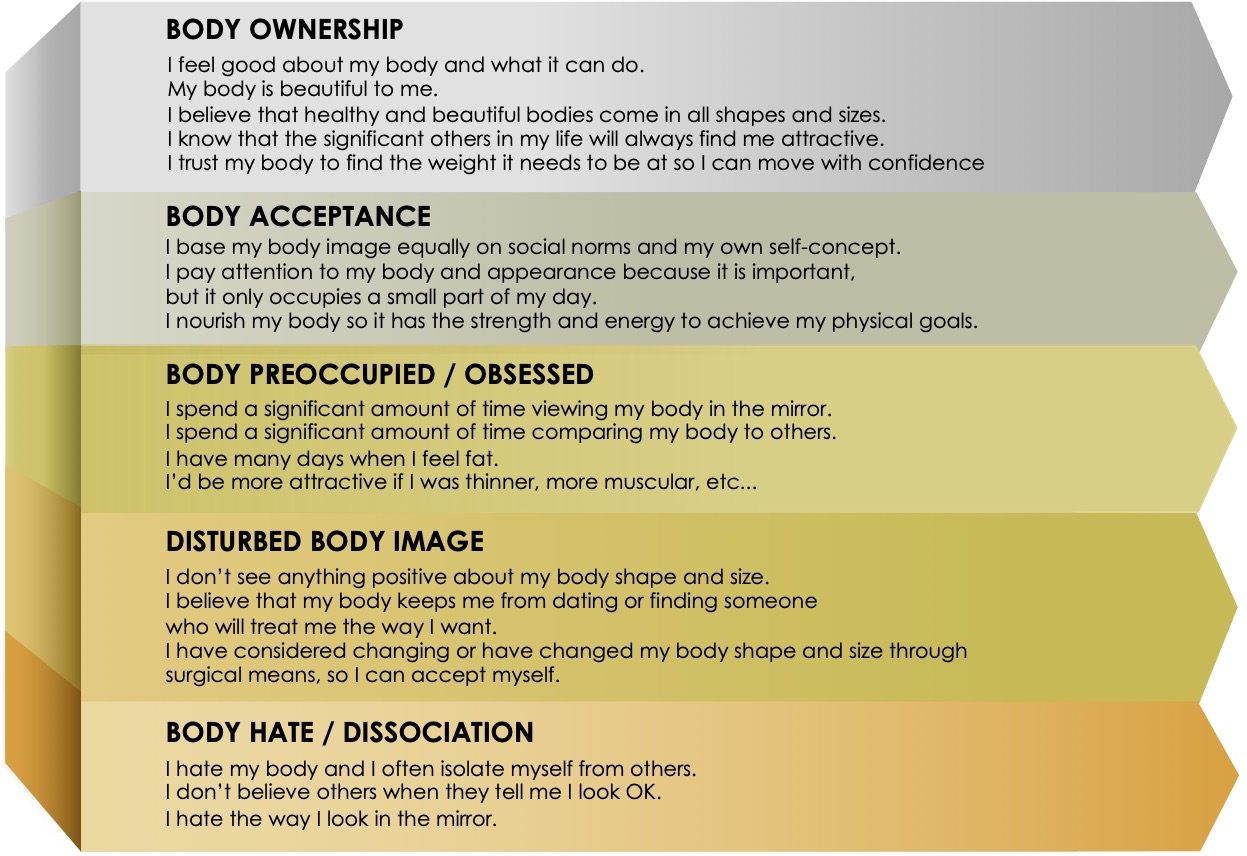18.13 Warning Signs of a Concerning Relationship with Food or the Body
A person has a concerning relationship with food or the body might show one or more of the following signs:
- Dramatic weight loss in a relatively short period of time, regardless of current weight
- An intense and irrational fear of body fat and weight gain
- Difficulty concentrating on other things due to excessive preoccupation with weight, body shape, or food
- An obsessive determination to become thinner, fitter, or more muscular
- A distorted view of body size and shape
- Basing self-worth on body weight, shape, or other aspects of appearance
- Obsession with others’ weight and appearance
- Frequent skipping of meals, with excuses for not eating
- Food restriction and self-starvation
- Eating only a few foods, especially those low in fat and calories
- Eliminating entire food groups
- Unusual food rituals or behaviors, such as moving food around the plate, cutting portions into tiny pieces, or creating nontypical concoctions of foods
- Using food to cope with negative emotions
- Frequent trips to the bathroom after meals
- Frequent weighing of self and focusing on tiny fluctuations in weight
- Frequent dieting
- Obsessively measuring or weighing food
- Avoiding food not prepared by the individual or when the individual can’t identify exactly what’s in it
- Obsession about eating in a way that’s believed to be perfect
- Focus on an excessive exercise regimen
- Using or hiding the use of diet pills or laxatives
- Avoidance of social gatherings, especially where food is involved
- Fatigue and overall weakness
- Loss of control over eating
- Loss of menstrual periods or irregular periods
- Efforts around hiding disordered eating behaviors
- Inability to consider healthy alternatives even after disordered eating behaviors are acknowledged.
Body Image Continuum Visual

View a table format of the Eating Issues and Body Image Continuum.
Keep in mind that exhibiting these signs does not necessarily indicate an eating disorder; it is not possible to tell if a person has an eating disorder simply by appearance; many of the warning signs are related to attitudes and behaviors toward food, diet, body, exercise, and appearance, and different types of eating disorders can have warning signs other than those listed.
If you think that you or someone you know has an eating disorder, some form of disordered eating, or body dysmorphia, don’t ignore it. Disordered eating behaviors compromise overall health and wellbeing.
Self-Assess Your Understanding
- What are warning signs of a concerning relationship with food or the body?

